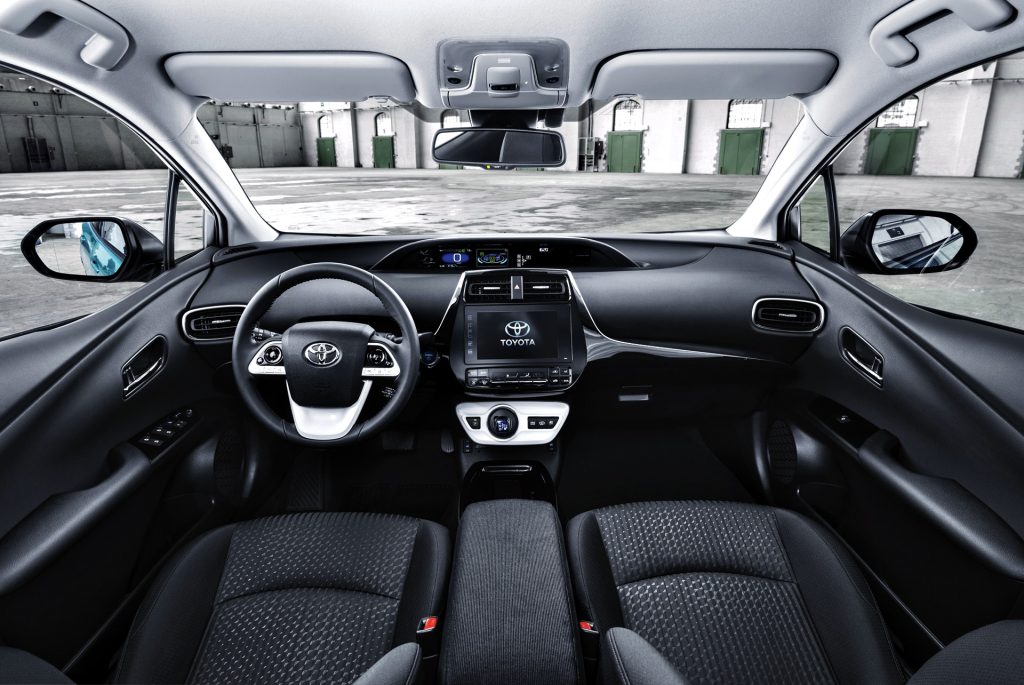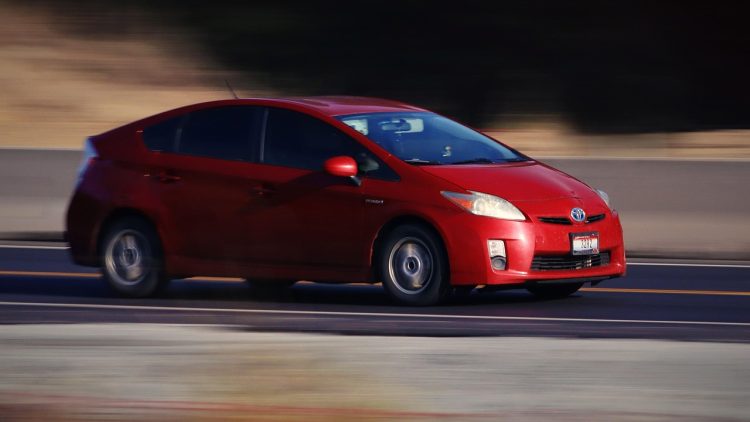The Toyota Prius has long been a symbol of the hybrid car revolution, standing as the pioneer of hybrid vehicles since its debut in the late 1990s. When it was first introduced, the Prius captured the attention of environmentally conscious consumers and set the stage for the widespread adoption of hybrid technology. Over the years, it became synonymous with fuel efficiency and eco-friendly driving, while influencing an entire generation of car buyers to embrace alternatives to traditional gasoline engines.
However, after more than two decades in the market, the Prius faces new challenges. The world of automotive technology has drastically evolved, and the hybrid market now includes a range of options from various manufacturers. At the same time, fully electric vehicles (EVs) have emerged as a viable alternative to hybrids, offering consumers the opportunity to drive without any emissions or reliance on fossil fuels. So, the question arises: Can the Toyota Prius, once a revolutionary vehicle, still attract the attention of today’s new generation of car buyers? In this article, we will analyze the Prius’s legacy, its current offerings, and how it stacks up against both newer hybrids and the rapidly growing electric vehicle market.
1. A Brief History of the Toyota Prius: Setting the Standard
When the Toyota Prius was first introduced in 1997, it was the world’s first mass-produced hybrid vehicle. The Prius combined a traditional internal combustion engine (ICE) with an electric motor, using a sophisticated hybrid powertrain that allowed for significantly better fuel efficiency compared to conventional cars. Its introduction marked a turning point in the automotive industry, as consumers began to see hybrid technology as a viable option for reducing fuel consumption and lowering carbon emissions.
- Fuel Efficiency Revolution: The Prius’s real breakthrough came from its ability to deliver exceptional fuel economy—something unheard of at the time. With an average fuel efficiency of over 50 miles per gallon (mpg), the Prius quickly became the go-to vehicle for those wanting to save money on gas and reduce their environmental impact. The car’s ability to switch between gasoline and electric power, along with its regenerative braking system, made it a standout in the market.
- Design and Popularity: Initially, the Prius’s unconventional design turned heads, with its unique aerodynamic shape and futuristic features. Its design reflected its eco-friendly ethos, and while it may not have been the most visually appealing car on the market, it quickly became a symbol of environmental consciousness. Celebrities, politicians, and everyday consumers alike embraced the Prius, and it became synonymous with “green” driving in the early 2000s.
2. The Current Toyota Prius: Evolution or Stagnation?
Fast forward to today, and the Toyota Prius has gone through several iterations, each aimed at improving performance, fuel efficiency, and technology. However, it faces the challenge of competing in an increasingly crowded market that includes not only hybrid rivals but also fully electric vehicles (EVs) that offer zero-emissions driving.
- Design and Features: The latest generation of the Toyota Prius has seen some much-needed design updates, making it look sleeker and more modern compared to earlier versions. However, the Prius still maintains its distinctive shape, which, while functional, may still not appeal to younger buyers who are increasingly looking for stylish and performance-oriented vehicles. The Prius’s design is functional and optimized for aerodynamics, but it doesn’t quite match the sleek, futuristic designs that many new-generation consumers are gravitating toward, especially when compared to stylish electric vehicles like the Tesla Model 3 or the Chevrolet Bolt EV.
- Performance: The Prius’s primary selling point is its fuel efficiency, with the current model offering an EPA-estimated rating of 58 mpg in the city and 53 mpg on the highway. While these numbers are still impressive, performance isn’t typically the Prius’s strong suit. It’s not a car built for speed or thrill, but rather for efficiency and practicality. For younger buyers, however, performance often plays a significant role in purchasing decisions, and cars like the Honda Insight and Toyota Corolla Hybrid now offer similar hybrid technology with sportier designs and more engaging driving experiences.
- Technology and Infotainment: The Toyota Prius now comes with modern tech features, such as a large touchscreen infotainment system, Apple CarPlay, Android Auto, and advanced safety features like Toyota Safety Sense. While the tech is competitive within the hybrid and traditional gasoline car segments, it still lags behind what some of the latest EVs are offering, particularly in terms of autonomous driving capabilities and high-tech interfaces. New-generation buyers may prioritize cutting-edge tech, which has become a major selling point for electric cars.

3. The Rise of Fully Electric Vehicles: A Threat to the Prius?
While the Prius was once the undisputed champion of fuel efficiency, the rise of fully electric vehicles (EVs) has introduced a new challenge. EVs have become more mainstream, and automakers like Tesla, Ford, Volkswagen, and Chevrolet have rapidly expanded their electric vehicle lineups. The electric car offers several advantages over the hybrid vehicle, such as:
- Zero Emissions: Unlike the Prius, which still uses gasoline as part of its hybrid system, fully electric vehicles operate without any internal combustion engine, producing zero emissions. As environmental concerns continue to rise, the appeal of fully electric cars as a cleaner, greener alternative to both hybrids and traditional gasoline vehicles has grown significantly.
- Improved Range and Charging Infrastructure: Electric vehicles now offer impressive range, with models like the Tesla Model 3 providing over 350 miles of range on a single charge, a level that’s competitive with the fuel efficiency of many hybrids. Additionally, the growing network of fast-charging stations makes it easier than ever for EV owners to keep their vehicles powered up during long trips. The Prius, on the other hand, relies on a more complex system of both gasoline and electric power, which can be less efficient in some driving conditions.
- Price and Incentives: Many new EVs come with competitive pricing, especially with government incentives and tax credits for purchasing electric vehicles. In some markets, this has made EVs more affordable than ever before, and the availability of entry-level electric cars like the Chevrolet Bolt or the Nissan Leaf has presented potential buyers with an attractive alternative to hybrid vehicles.
The rise of electric vehicles has forced automakers, including Toyota, to rethink their strategy for hybrids. While Toyota has made a strong push into the EV market with models like the Toyota bZ4X, the continued success of the Prius depends on its ability to remain relevant in an EV-dominated future.
4. Who is Still Interested in the Prius?
Despite the challenges posed by the rise of electric vehicles, the Prius still has a loyal following. There are several groups of consumers for whom the Prius remains an attractive option:
- Environmental Enthusiasts: The Prius continues to be popular among those who prioritize environmental consciousness but may not yet be ready to make the jump to a fully electric vehicle. For many consumers, a hybrid represents a practical first step toward reducing their carbon footprint without the range anxiety associated with EVs.
- Fuel Economy Seekers: Those who want a car with exceptional fuel efficiency at a relatively affordable price still find the Prius appealing. The cost of fuel remains a significant concern for many drivers, and the Prius’s fuel savings make it a smart financial choice in the long run.
- Urban Drivers: People living in urban areas, where fuel efficiency is often a priority and driving distances are shorter, may find the Prius to be an ideal solution. The Prius’s compact size and ease of maneuverability in tight spaces also make it an attractive option for city dwellers.
5. Can the Prius Appeal to Newer Generations?
The new generation of car buyers, particularly millennials and Gen Z, are highly influenced by several factors, including:
- Sustainability and Environmental Impact: These consumers tend to be more eco-conscious and place a higher value on reducing their carbon footprint. While the Prius is still an attractive option for this demographic due to its fuel efficiency and environmental friendliness, fully electric vehicles now dominate the sustainable driving conversation. As these younger buyers move toward zero-emission vehicles, hybrids may not offer enough of an incentive to make them the car of choice.
- Technology and Innovation: Younger consumers are also attracted to the latest technology, from infotainment systems to autonomous driving features. The Prius may be seen as a practical choice, but in terms of cutting-edge tech, the Tesla Model 3, Ford Mustang Mach-E, or even Volkswagen ID.4 may be more appealing due to their advanced systems and modern features.
- Performance and Style: Younger buyers often prioritize style and performance in their vehicles. While the Prius offers an efficient ride, it lacks the sporty appeal that some of the newer hybrids or EVs provide. Consumers in this demographic may opt for more stylish and performance-oriented alternatives, leaving the Prius behind in terms of mass-market appeal.
6. Conclusion: Can the Toyota Prius Still Attract the New Generation?
The Toyota Prius remains a trailblazer in the hybrid market, and its legacy as a pioneer in eco-friendly driving cannot be overstated. However, as the market for electric vehicles continues to grow and evolve, the Prius faces increasing competition from both other hybrid models and fully electric cars.
While the Prius still holds significant appeal for those seeking fuel efficiency, environmental consciousness, and a proven hybrid system, it may struggle to capture the attention of younger, tech-savvy consumers who prioritize style, performance, and cutting-edge electric vehicle technology. For the Prius to remain relevant, Toyota must continue to evolve, perhaps by introducing more advanced tech features or even fully electric versions of the Prius lineup to stay in tune with the demands of today’s consumers.
In short, while the Prius may still hold its place as a practical choice for certain segments of the population, it faces challenges in attracting new-generation buyers who are increasingly leaning toward electric vehicles. The success of the Prius in the future will depend on how well it adapts to the changing landscape of the automotive industry and meets the evolving expectations of today’s consumers.


































Discussion about this post